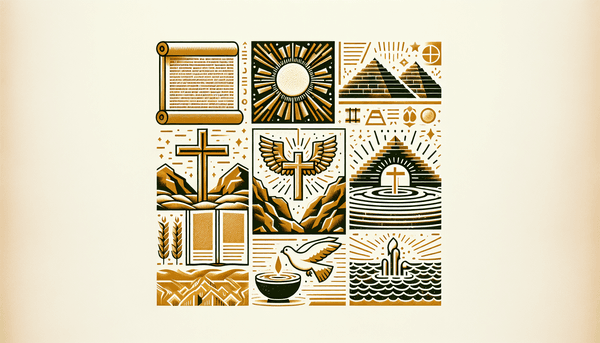The Virgin Birth and Incarnation
The Virgin Birth of Jesus is a cornerstone of Christian belief, which holds that Mary was a virgin when she gave birth to Jesus. This miraculous event was foretold to Mary by the angel Gabriel, who announced that she would conceive by the Holy Spirit, and the child would be called the Son of God (Luke 1:35). This concept is further supported by the Old Testament prophecy, 'The virgin will conceive and give birth to a son, and will call him Immanuel' (Isaiah 7:14), which Christians interpret as a direct prediction of Jesus's miraculous birth. The Incarnation, God becoming flesh in the person of Jesus Christ, is a profound mystery that underscores the Christian faith. The Gospel of John eloquently states, 'The Word became flesh and made his dwelling among us' (John 1:14), which signifies that Jesus, referred to as 'the Word', was both fully divine and fully human, a necessary truth for the redemptive work of salvation.
The Ascension and Witnesses
The ascension of Jesus Christ is a significant event in Christianity, marking the moment when Jesus was taken up to heaven. The Gospel of Mark details this extraordinary occurrence, stating that Jesus was 'taken up into heaven and sat at the right hand of God' (Mark 16:19). Similarly, the miracles performed by Jesus, as recorded in other parts of the New Testament, further attest to His divine nature and mission. The Acts of the Apostles describes how Jesus was lifted up before his disciples' eyes, and a cloud hid him from their sight (Acts 1:9). This moment served not only as a testament to Jesus's divine nature but also confirmed his resurrection and his exalted status at the right hand of the Father. The disciples, who were eyewitnesses to this event, had their faith strengthened and went on to become bold proclaimers of the Gospel, as evidenced in Peter's sermon at Pentecost where he declared Jesus's lordship and ascension (Acts 2:32-33). The eventual martyrdom of the apostles speaks to their unwavering conviction in the truth of what they had witnessed and the transformative power of the ascension event.
The Birth and Name of Jesus
The birth and name of Jesus carry significant theological meaning within the Christian tradition. The Gospel of Matthew tells us that Jesus was born in Bethlehem, fulfilling the prophecy of Micah that out of Bethlehem would come a ruler who would shepherd God's people (Micah 5:2, Matthew 2:1). The name 'Jesus', derived from the Hebrew 'Yeshua', means 'The Lord saves' and encapsulates his divine mission to save humanity from sin. When an angel appeared to Joseph in a dream, he was told to name the child Jesus because he would save his people from their sins (Matthew 1:21). This connection between Jesus's name and his saving work is an affirmation of his identity as the Messiah, the anointed one sent by God to bring redemption and hope to the world.
FAQ
Q: What is the Holy Trinity?
A: The Holy Trinity is the Christian belief in the three persons of God: the Father, the Son (Jesus Christ), and the Holy Spirit. These three persons are distinct, yet coexist as one God, a foundational belief that emphasizes unity and diversity within the Godhead.
Q: Who is Jesus's father?
A: Jesus's father is God. According to the Gospel of Luke, Jesus was conceived by the Holy Spirit and born of the Virgin Mary, making him the Son of God (Luke 1:35).
Q: How did Mary get pregnant?
A: The Bible teaches that Mary, a virgin, was visited by the angel Gabriel who announced to her that she would conceive a child by the Holy Spirit. This event is known as the Virgin Birth (Luke 1:35).
Q: Was God once on earth?
A: Yes, Christians believe that God was on earth in the person of Jesus Christ. This is known as the doctrine of the Incarnation, where 'The Word became flesh and made his dwelling among us' (John 1:14).






